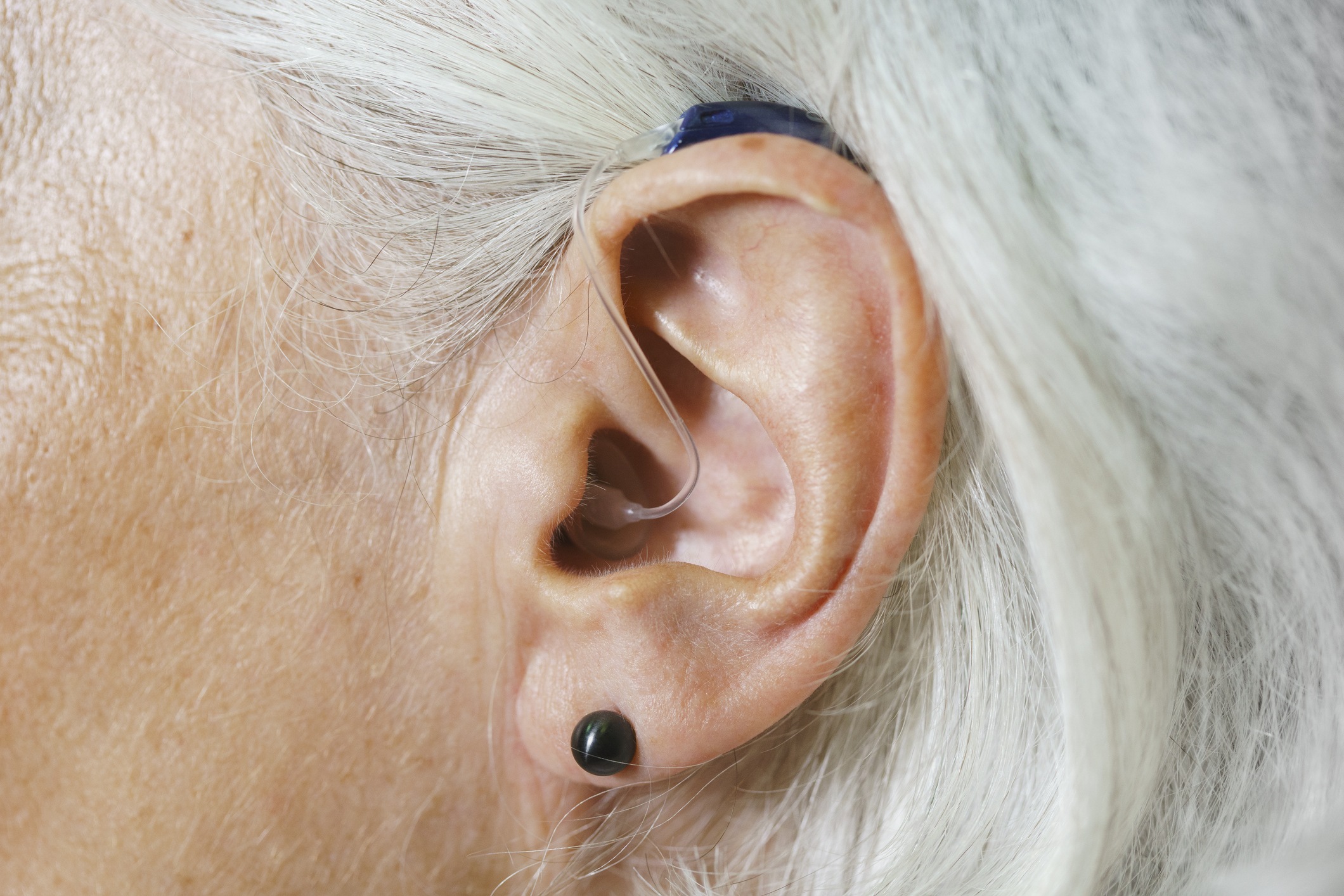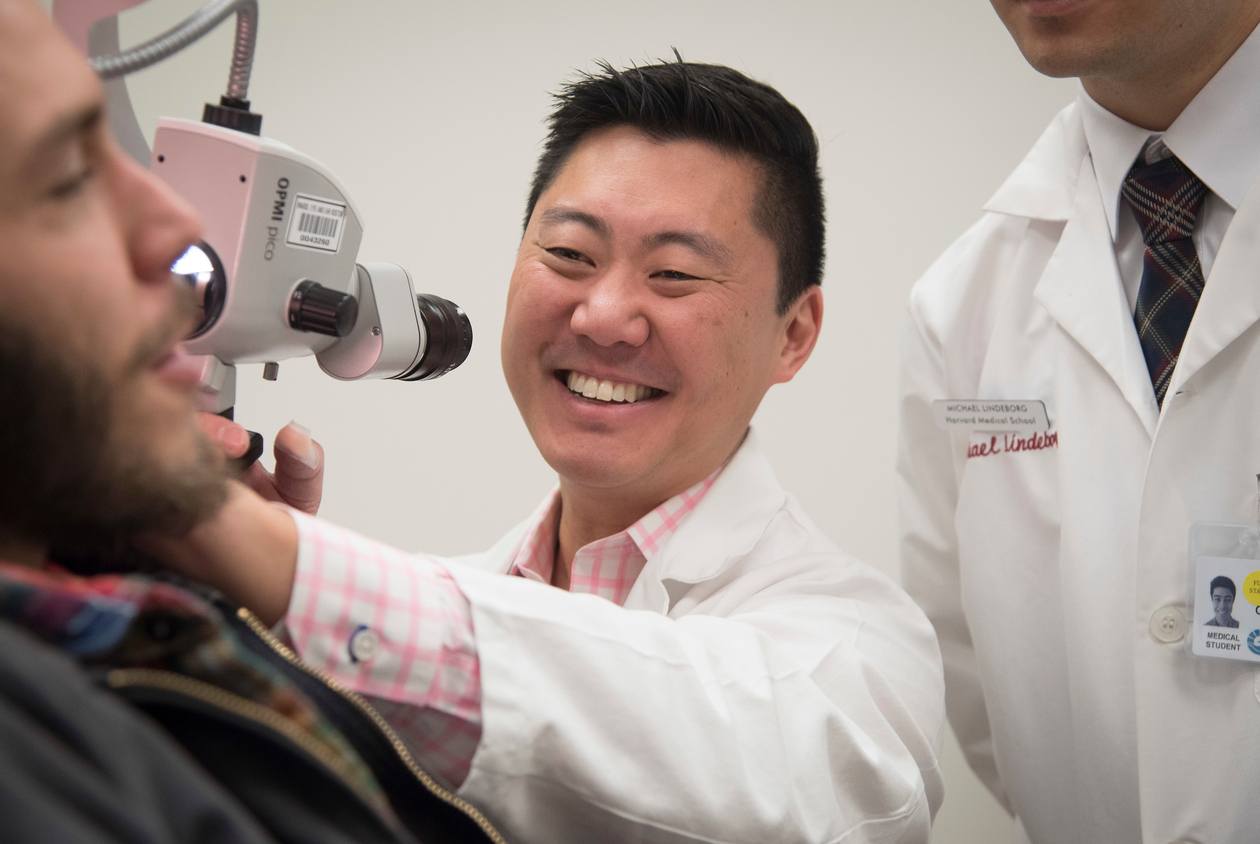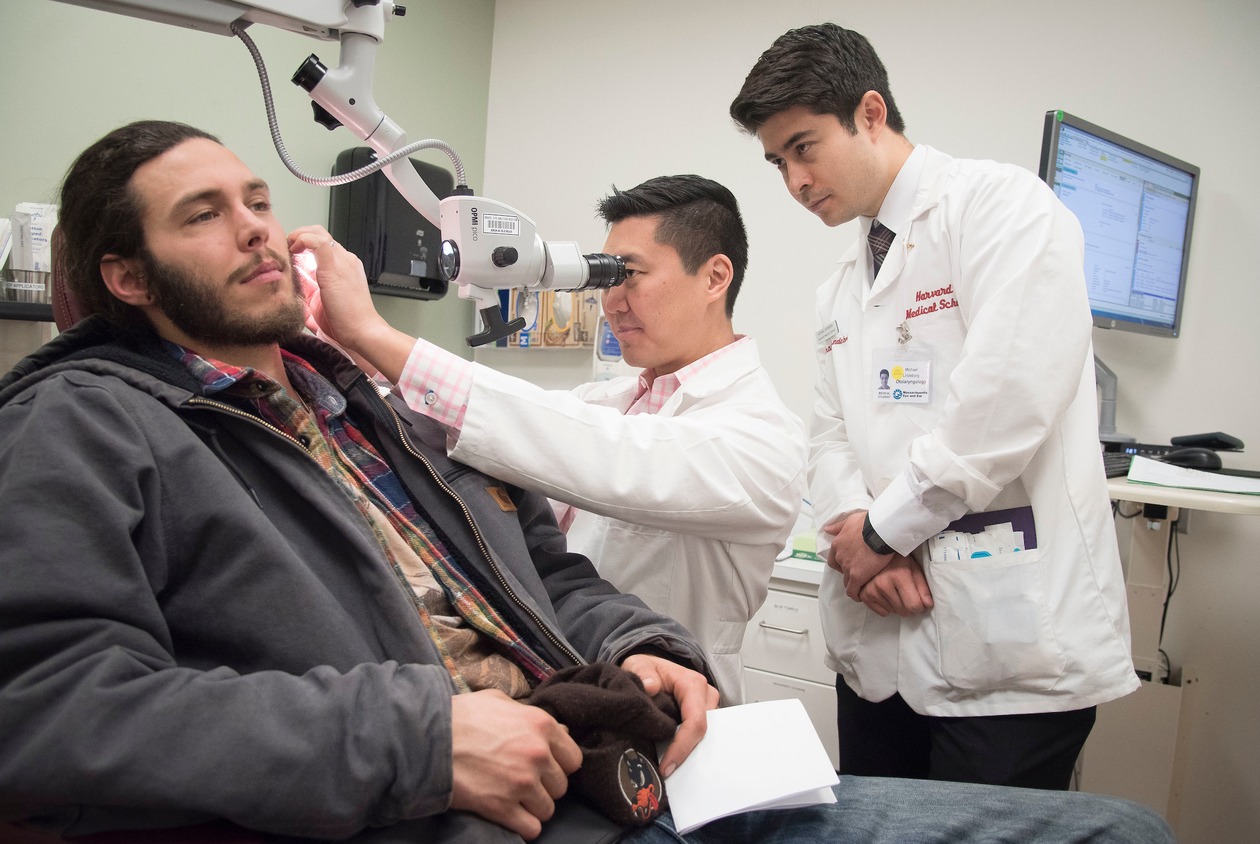4 Frequently Asked Ear, Nose, and Throat Health Questions, Answered by a Specialist

Photo Credit: Getty Images
She came to the doctor’s office with her daughter and a whiteboard. It was the only way she could communicate since losing her hearing. After exchanging written messages with the doctor, though, she discovered that her hearing actually wasn’t lost at all. She just needed a specialist to help find it.
“After cochlear implant surgery [inserting a small electronic device into the ear that stimulates hearing] we were able to give her back hearing in one ear,” says Boston magazine Top Doc David H. Jung, MD, PhD, of Massachusetts Eye and Ear. “After the surgery, she brought in cookies she baked for the whole clinic and no longer carried a whiteboard.”
This woman’s cochlear implant surgery is one of the many success stories from patients who have seen Mass. Eye and Ear specialists for ear, nose, and throat (ENT) issues. Thinking it might be time to schedule an appointment? Here are four common ENT health questions, answered by Dr. Jung.

Dr. Jung. Photo Credit: Mass. Eye and Ear
What is an ENT specialist?
ENT specialists (or otolaryngologists) treat a wide range of ailments, but primarily focus on diseases of the ear, nose, throat, head, and neck. In fact, nearly half of patients who schedule an appointment with their primary care doctor go in for some sort of ENT issue, according to the American Academy of Otolaryngologists.
“ENT encompasses nearly everything in the head and neck apart from the eyes, brain, and spine,” says Dr. Jung. “Senses such as hearing, smelling, and tasting are ones that people don’t really think about until they no longer function, and our goal as specialists is to help restore them.”
What conditions do ENT specialists treat?
Maybe you’re a singer with a sore throat, or the mother of a newborn with hearing loss. Whether ailments are simple or severe, ENT specialists can offer treatment during all stages of life for most conditions, including these common ones:
Ear: ear infections, hearing loss, dizziness, tinnitus
Nose: rhinitis, sinusitis, and nasal obstruction
Throat: sore throat, hoarseness, gastroesophageal reflux disease (GERD), infections, throat tumors, airway and vocal cord disorders
Those suffering from neck and thyroid pain, facial trauma, and sleep issues can also be treated by an ENT specialist.
When should I see an ENT specialist?
Primary care doctors can take care of minor ailments, but Dr. Jung encourages people to see an ENT specialist for more complex concerns, such as sudden hearing loss or difficulty breathing. Dizziness and balance problems may also be key signs of an ENT issue. Even if you’re unsure if your ailment is worth an appointment, Dr. Jung says, “Seeing an ENT specialist is never a bad idea.”

Photo Credit: Getty Images
What can I do to prevent ENT disorders?
Maintaining good hygiene—like frequently washing your hands— is crucial to fighting back against most ENT issues stemming from infections, especially for small children. To avoid hearing loss, Dr. Jung suggests doing whatever you can to minimize the noise in your life.
“The biggest piece of advice I have for everyone is protect your ears,” he says. “Avoidance is best, but foam ear plugs can help bring exposure down to a safe level.”
Bonus tip: Throw away the Q-tips®. Dr. Jung says the best way to clean your ears is to let them clean themselves and “swab only what you see.”

Photo Credit: Mass. Eye and Ear
Everyone will deal with ENT issues in their lifetime, but they don’t have to become the norm. Whatever your ailment, ENT specialists like Dr. Jung at Mass. Eye and Ear can help you feel like yourself again.
“As a specialty hospital, we’re really able to push the envelope and come up with novel cures for ENT problems,” says Dr. Jung. “Solving those problems and taking care of people…that’s what I love about my job and what motivates me every day.”
To learn more about ENT health and to request an appointment with the specialists at Mass. Eye and Ear, visit MassEyeAndEar.org.
This is a paid partnership between Massachusetts Eye and Ear and Boston Magazine


